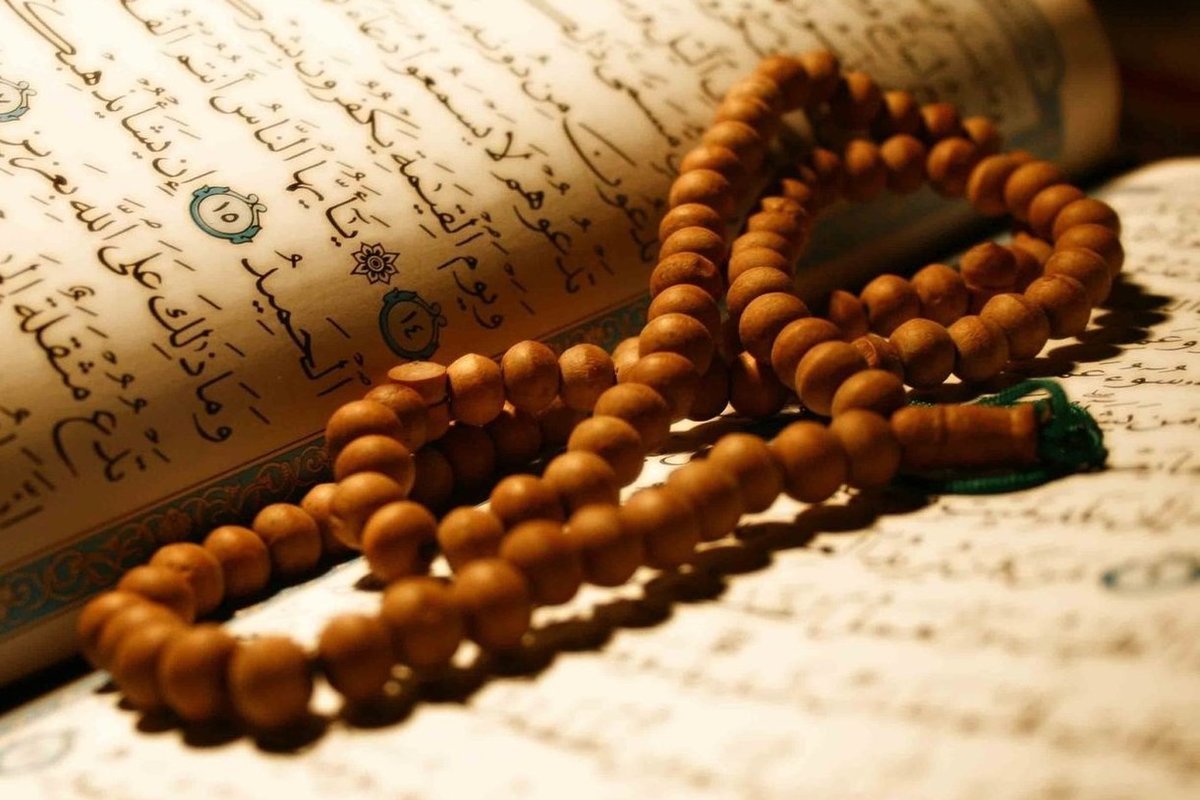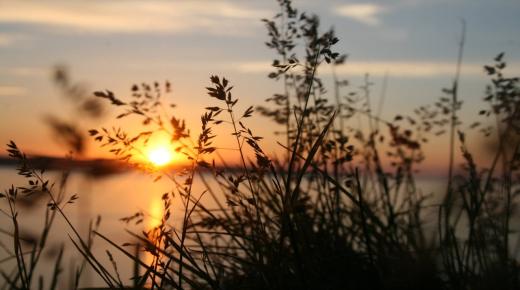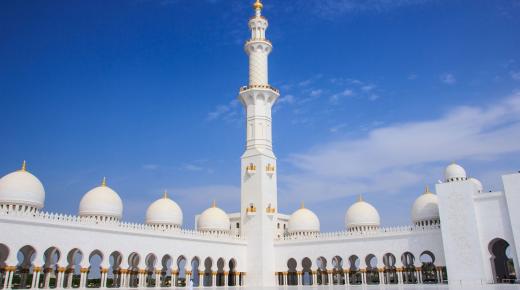
Remembrances and supplications are among the most important things that bring a servant closer to his Lord, and we have received from the Messenger of God (may God bless him and grant him peace) remembrances that are said at every time of the day; Whether in the morning or evening, or at the time of dawn, the remembrances are among the things that preserve the believer’s faith and his connection to his Lord (Glory be to Him).
The virtue of dhikr after prayer
After every prayer, the believer sits in front of his Lord to complete His glorifications and remembrances, and this act is a great virtue with God (swt). Then he stands up and prays the two rak’ahs of Duha, as if he had performed a complete Hajj and Umrah.
This is in confirmation of the words of our noble Messenger (may God bless him and grant him peace): “Whoever prays the dawn prayer in congregation, then sits remembering God until the sun rises, then prays two rak’ahs, it will be for him the reward of a complete Hajj and Umrah, complete, complete, complete.” A true hadith.
In this we see that the virtue of the dhikr after prayer is great, and every believer must not miss this opportunity for himself, because the reward that God has made for dhikr after prayer deserves to be won, in addition to that psychological comfort and physical strength that makes the believer on the verge of performing the tasks of his day with vigor and vitality.
Remembrance after Fajr prayer
There are many supplications that were mentioned by our Holy Prophet (may God bless him and grant him peace), which he recited after the Fajr prayer, and he urged us to adhere to them after each prayer, because of their great virtue and good effect on the souls of Muslims who persevere in them.
- The Prophet used to say when he prayed the morning prayer when he said the salutations: “O God, I ask You for useful knowledge, good sustenance, and acceptable deeds.”
- Immediately after the salutation of the Fajr prayer and before we leave the place of prayer: “Whoever says after the Fajr prayer while he is on the second of his legs before speaking: There is no god but God alone, He has no partner, His is the kingdom and His is the praise, He gives life and causes death and He has power over all things ten times, wrote God has ten good deeds, erases ten bad deeds from him, and raises ten degrees for him, and his day was in protection from every bad thing, and he was guarded from Satan, and no sin should realize him on that day; Except for associating partners with God (the Mighty and Majestic).
- Our Messenger (may God bless him and grant him peace) used to recite this remembrance after every written prayer: “I ask God’s forgiveness, I ask God’s forgiveness, O God, You are peace and from You is peace, blessed are You, O Possessor of Majesty and Honor.” Narrated by Muslim.
- “Oh God, we seek your help, we seek your forgiveness, we believe in you, we trust in you and we praise you for all good.
- “O Allah, I seek refuge in You from the evil of every stubborn tyrant, and a rebellious Satan, and from the evil of an evil judgment, and from the evil of every animal whose forelock you take, my Lord is on a straight path.”
- “In the name of God, the best of names. In the name of God, with whose name no harm harms.
The best dhikr after the Fajr prayer

Our master Muhammad (may God bless him and grant him peace) is the first teacher of humanity, and the light that God sent to the world. Among the best remembrances after the Fajr prayer, which we call the morning remembrances after the Fajr prayer:
- The Muslim begins by reciting Al-Mu’awwidhatayn and Surat Al-Ikhlas, then reciting Ayat Al-Kursi.
- "Hallelujah and praise, the number of his creation, and the same satisfaction, and the weight of his throne, and his words outrigger".
- “بسم الله الذي لا يضر مع اسمه شيء في الأرض ولا في السماء، وهو السميع العليم، اللَّهُمَّ صَلِّ عَلَى مُحَمَّدٍ وَ آلِ مُحَمَّدٍ، الْأَوْصِيَاءِ الرَّاضِينَ الْمَرْضِيِّينَ بِأَفْضَلِ صَلَوَاتِكَ، وَ بَارِكْ عَلَيْهِمْ بِأَفْضَلِ بَرَكَاتِكَ، والسَّلَامُ عَلَيْهِمْ وَعلَى أَرْوَاحِهِمْ وَ أَجْسَادِهِمْ، وَرَحْمَةُ اللَّهِ وَ بَرَكَاتُهُ ".
- O Allah, I ask You for well-being in this world and the Hereafter.
- We have become and the kingdom belongs to God, and there is no god but God alone, He has no partner, His is the kingdom and His is the praise, and He is capable of everything. My Lord, I seek refuge in You from laziness and bad old age, and I seek refuge in You from torment in the Fire and torment in the grave. Abraham, peace and blessings be upon him, a Hanafi Muslim, and he was not of the polytheists.”
- “O Allah, guide us to whom You have guided, and heal us to whom You have pardoned, and take care of us with whom You have taken care of, and bless us in what You have given, and protect us and turn away from us the evil of what You have decreed.
Remembrance before Fajr prayer
Before the prayer, the believer sits in remembrance of his Lord, desiring His great bounty and generosity. Persistence in reciting dhikr elevates the Muslim to the highest levels, so ask God for the ability to perform them and persevere in them. There are many dhikr that a Muslim prefers to repeat before Fajr prayer, including:
- “Oh God, we ask you for a supplication that is not rejected, sustenance that is not counted, and a door to heaven that is not blocked.”
- “Indeed, the guardians of God have no fear, nor do they grieve, those who believed and were fearful. Oh God, make us among your guardians.”
- Oh God, what you divided in this dawn of goodness, health, and abundance of livelihood, so make us from it the best of luck and share, and what you divided in it of evil, affliction and temptation, so keep it away from us and Muslims, Lord of the worlds.
- “O Allah, do not burden us with what we cannot bear, and pardon us, and forgive us, and have mercy on us, You are our Lord, so grant us victory over the unbelieving people.”
- “I seek refuge in God from what I fear and beware. God is my Lord. I do not associate anything with Him. Glory be to your neighbor, may your praise be glorified, and your names are sanctified. There is no god but You.”
- “In the name of God on myself and my religion, in the name of God on my family and my money, in the name of God on everything my Lord has given me God is great, God is great, God is great.”
Is it permissible to read the morning remembrances before Fajr prayer?
Each of the dhikr has its time in which it is desirable to recite it, and if you are one of those who persevere in some dhikr, or read a word from the Holy Qur’an on the day or night, and you missed its time, do not neglect it and make it up at any time.
Although the best time for the morning remembrance is from the appearance of the clear dawn until sunrise, and that is in confirmation of the words of God (the Most High): “Glory be to God when you touch the evening and when you wake up.” However, this does not invalidate the virtue of the morning remembrances before the Fajr prayer, but it is desirable to do them on time.
What are the desirable actions between dawn and sunrise?
Among the best actions that a Muslim can perform at this time are:
- Do ablution and go to the mosque to perform the Fajr prayer in congregation.
- After the call to prayer, the Muslim repeats: “O God, the Lord of this complete call, and the established prayer, give our master Muhammad the means and virtue, and the lofty high rank, and grant him God the praised station that You promised him, that you do not break the promise.”
- After the prayer, he sits in front of God, remembering him and calling upon him, and repeating the dhikr that our noble Messenger recommended to us, until the time of sunrise, then he rises from his place to pray the two units of Duha, so the reward for this with God is like the reward of a complete Hajj and Umrah.


